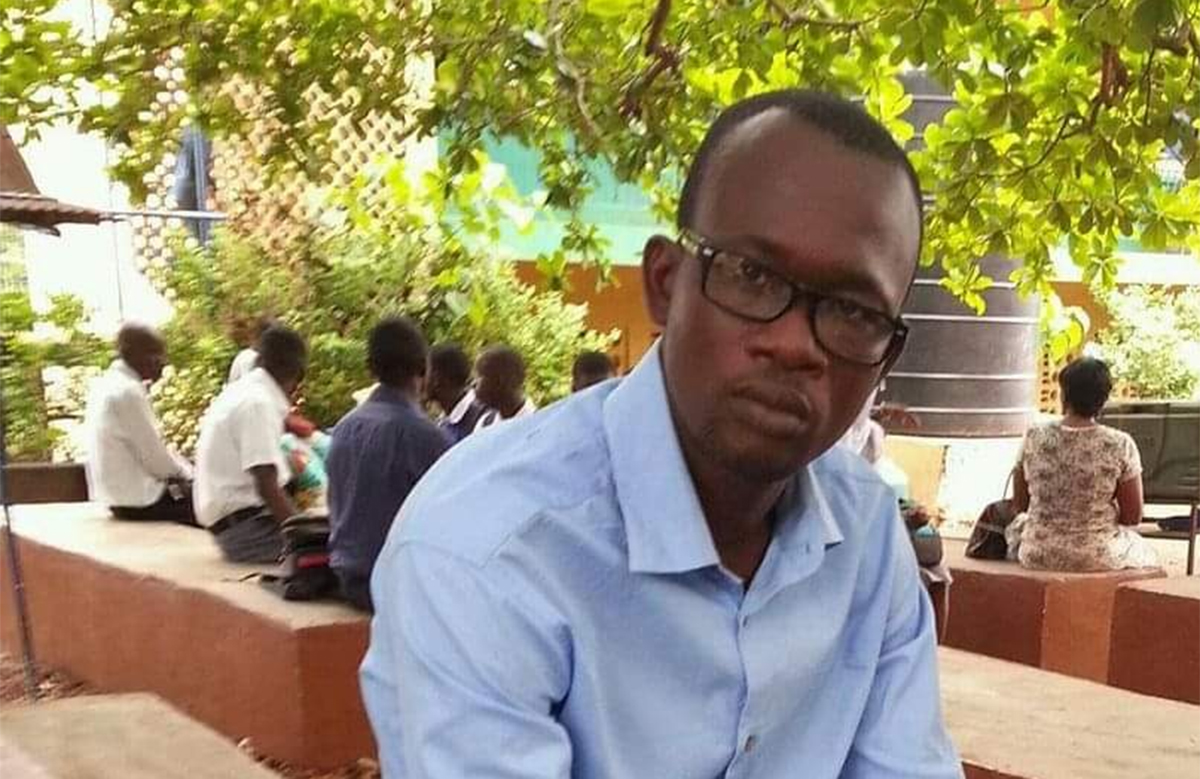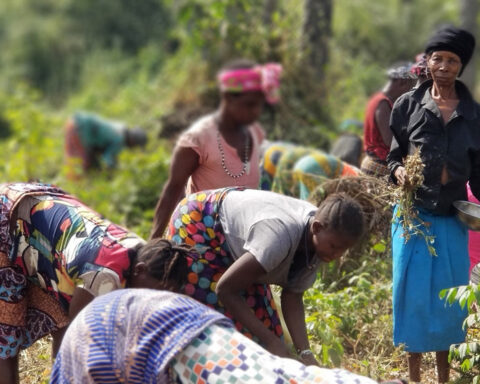I was a teacher when someone who took the irregular route to Europe persuaded me to do the same. He told me, “I am not very educated, but you are. I am sure that if you found your way to Europe, you would be more successful than me.”.
So, I took my savings and took up the journey. I first went to Guinea, then to Mali, where we started to experience the bitterness of the journey. We met a Sierra Leoniean who spoke our local language, so we took him for a brother and took his advice. He gave us a card and told us to take the bus to Gao, where someone will receive us and take us to Algeria.
After three days, we reached Gao, the last checkpoint before Algeria. There, we gave our cards to the agent but all of them were rejected. So, we went to another agent, who brought us to a pick-up. We then entered the desert where we spent three to four days. There, we were robbed and had our money and bags taken.
We finally reached the village of Bordj in the south of Algeria. It was very difficult there, but we had to continue to reach Oran. Then from Oran, we reached Debdeb on the border with Libya, which we entered after some weeks.
In Libya, I spent three months in a camp called the “White house”, waiting to cross the sea. There it was very difficult to get any food. One day, the police and soldiers arrived and arrested us. We ended up in detention. That’s when I started to advocate for my colleagues, for better conditions, better services. As a result, I was beaten. But I continued. In November 2017, we returned to Sierra Leone via charter flight with support from the International Organization for Migration (IOM).
Returning to Freetown
When I came home, not much had changed: I met a lot of young people wanting to take the same journey as me. I thought about how I had suffered, been beaten, gone without food, and I didn’t want them to go through what I did. So, I took the responsibility to inform them of the risks of this irregular journey, to save their lives.
Young people still want to leave,; they want to take that “Temple Run.” That is why we have to talk to them, educate them and inform them about the reality of irregular migration.
When I came back, I said to myself, I need to share what I have seen, what I have experienced, with no shame. I went to the radio and to public places. But I realized I could not do it alone. Other migrants were suffering in the Middle East, in Italy, in France. When they returned, they joined me, so I decided to establish in 2017 the Advocacy Network Against Irregular Migration.
Challenges facing migrant returnees
Returnees face many challenges. Coming back is not easy. Some people try to start their business, but they do not have enough money because of the cost of living. So, they come back to my office asking for help. For those who are educated, for example, I help them join the police or the armed forces.
Another issue is that, some women are raped during their journey. They come back home with babies, babies who are fatherless, and no one to take care of these mothers and their children. We need to consider them and see how we can support these families.
Helping others in similar situations
We try to bring returnees’ situations to light. We advocate for job placements, and we support young people who want to return to school. I try my best to assist them, to help them take the exams; and I am proud to say that we have helped nine people, eight of whom are women, go to university.
We also have been holding psychosocial sessions with a counsellor in our office, to help migrants heal from their trauma.
I am working as well with the government, as part of the national taskforce against human trafficking, to stop traffickers. When migrants come to my office, I collect their information, the name of their agent, their phone numbers, addresses, and share that information with the international crime unit of the police.
I have completely dedicated myself to this work because I think I have to help other people. They need to know the reality of irregular migration. I have that passion in me, that humanity, which makes me accomplish what I am doing today. But it is very difficult, especially in terms of funding. Often, I had to use my teacher’s salary or take a loan to finance our work.
Effects of the pandemic
COVID-19 has had a heavy impact on returnees’ lives. Recently, 85 migrants coming back from Kuwait tested positive for coronavirus. They were ignored by their families, even after they were discharged from the isolation center, because they feared they still had the virus. So, for two months I supported them. And I mediated with their families, explaining to them that it was safe for them to return home.
Many returnees lost their jobs because of the pandemic. A lot of them usually go out to earn their daily living, or travel to Guinea to do business. But with the lockdown and borders closed, they can no longer work. They are spending their savings on rent and their affairs collapse.
It even affected me. Go to my office? No way. Try to get other people to support migrants? No way. Everybody is asking me, “hHow can you support when there is “corona”?” But we are all fighting coronavirus.
Informing people about the virus
We now go out to Freetown and other areas and try to educate people about the virus. There are people who have a very wrong conception about coronavirus. Some people say there is no virus, and it is just political and people trying to make money. So, we have to go out there, give the right message, try to educate people and tell them that “corona” is real and it makes no exception.
We also recorded videos with Migrants as Messengers* to tell people how to use face masks and why they need to do this. We targeted different people in the community, mainly opinions leaders so that they could help us spread the message.






